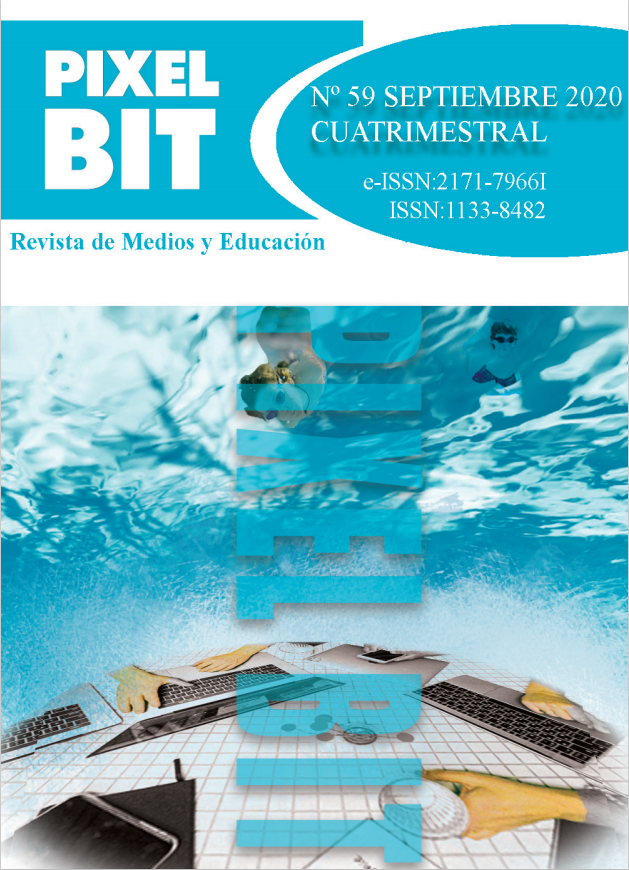Abstract
Este artículo se centra en comprobar las aportaciones de la tecnología Slack al trabajo cooperativo del profesorado inmerso en procesos de innovación educativa con metodología Design Thinking. Otro objetivo fue comprobar la satisfacción del alumnado con esta metodología. Participaron once profesores de la Universidad de Sevilla de tres áreas de conocimiento. Contestaron a un cuestionario online sobre el uso de Slack. También intervinieron 752 estudiantes de grado y máster, respondiendo a un cuestionario ad hoc para conocer su satisfacción en este proceso de aprendizaje. Se obtuvieron 427 respuestas, con un error muestral de ±3%. La investigación empleó un método mixto de carácter descriptivo y correlacional. Por una parte, se realizó un análisis de contenido de las respuestas del profesorado con el fin de diseñar un sistema de categorías. Posteriormente, con este se ejecutó un análisis temático para interpretar sus intervenciones en la herramienta Slack. Por otra parte, con las respuestas del alumnado se hicieron análisis descriptivos, correlacionales y un análisis factorial exploratorio (AFE). Una de las conclusiones fue que Slack resulta una tecnología favorecedora del trabajo cooperativo. Otra conclusión fue la fuerte relación positiva entre la satisfacción del alumnado con Design Thinking y la satisfacción en el trabajo en equipo.

